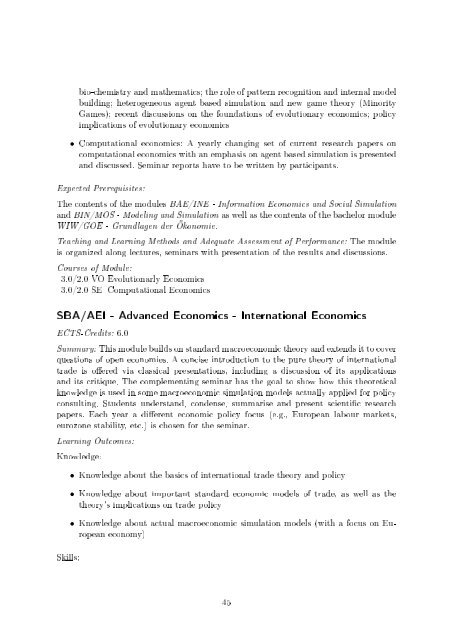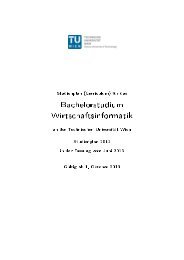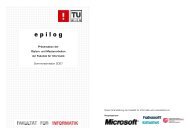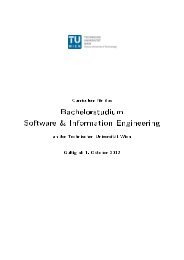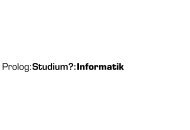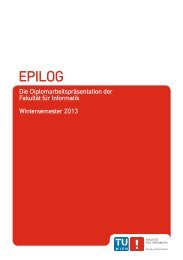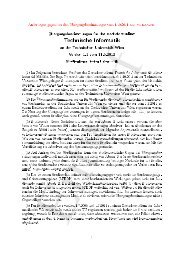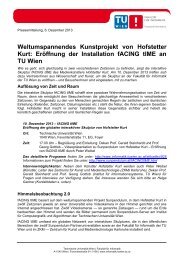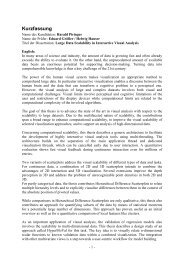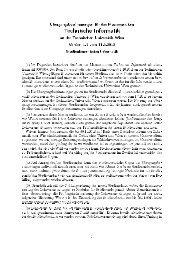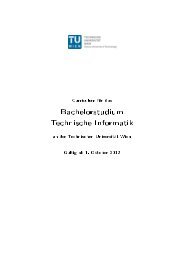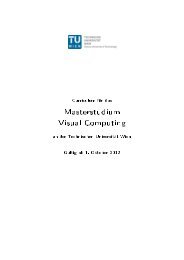Masterstudium Business Informatics - Fakultät für Informatik, TU Wien
Masterstudium Business Informatics - Fakultät für Informatik, TU Wien
Masterstudium Business Informatics - Fakultät für Informatik, TU Wien
Create successful ePaper yourself
Turn your PDF publications into a flip-book with our unique Google optimized e-Paper software.
io-chemistry and mathematics; the role of pattern recognition and internal model<br />
building; heterogeneous agent based simulation and new game theory (Minority<br />
Games); recent discussions on the foundations of evolutionary economics; policy<br />
implications of evolutionary economics<br />
• Computational economics: A yearly changing set of current research papers on<br />
computational economics with an emphasis on agent based simulation is presented<br />
and discussed. Seminar reports have to be written by participants.<br />
Expected Prerequisites:<br />
The contents of the modules BAE/INE - Information Economics and Social Simulation<br />
and BIN/MOS - Modeling and Simulation as well as the contents of the bachelor module<br />
WIW/GOE - Grundlagen der Ökonomie.<br />
Teaching and Learning Methods and Adequate Assessment of Performance: The module<br />
is organized along lectures, seminars with presentation of the results and discussions.<br />
Courses of Module:<br />
3.0/2.0 VO Evolutionarly Economics<br />
3.0/2.0 SE Computational Economics<br />
SBA/AEI - Advanced Economics - International Economics<br />
ECTS-Credits: 6.0<br />
Summary: This module builds on standard macroeconomic theory and extends it to cover<br />
questions of open economies. A concise introduction to the pure theory of international<br />
trade is oered via classical presentations, including a discussion of its applications<br />
and its critique. The complementing seminar has the goal to show how this theoretical<br />
knowledge is used in some macroeconomic simulation models actually applied for policy<br />
consulting. Students understand, condense, summarise and present scientic research<br />
papers. Each year a dierent economic policy focus (e.g., European labour markets,<br />
eurozone stability, etc.) is chosen for the seminar.<br />
Learning Outcomes:<br />
Knowledge:<br />
Skills:<br />
• Knowledge about the basics of international trade theory and policy<br />
• Knowledge about important standard economic models of trade, as well as the<br />
theory's implications on trade policy<br />
• Knowledge about actual macroeconomic simulation models (with a focus on European<br />
economy)<br />
45


